-

-
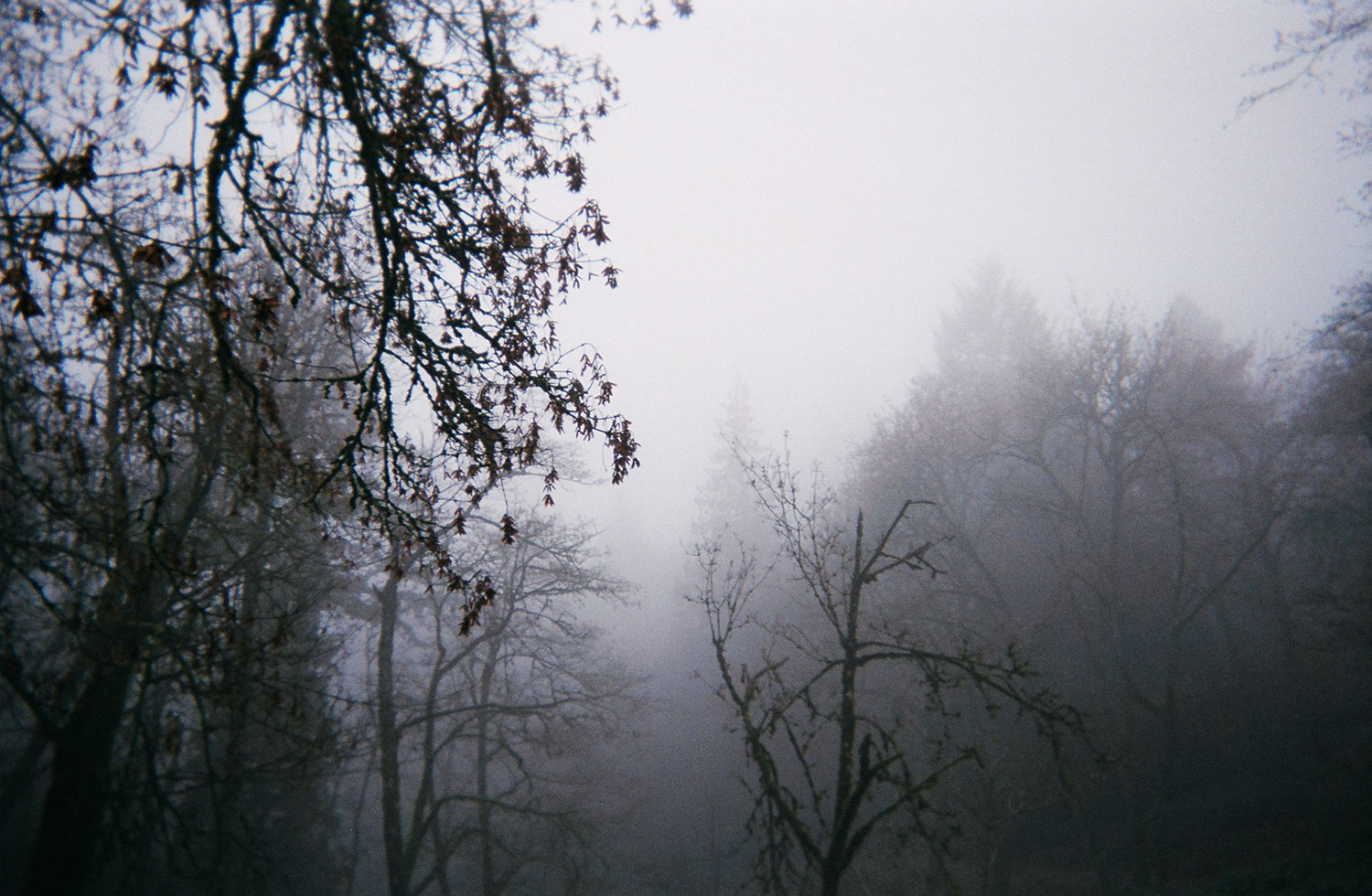 Editor’s Note: This is the second part of Paul Kwiatkowski’s cross-country assignment to investigate alternate perceptions of consciousness. Click here for part one.
Editor’s Note: This is the second part of Paul Kwiatkowski’s cross-country assignment to investigate alternate perceptions of consciousness. Click here for part one. -
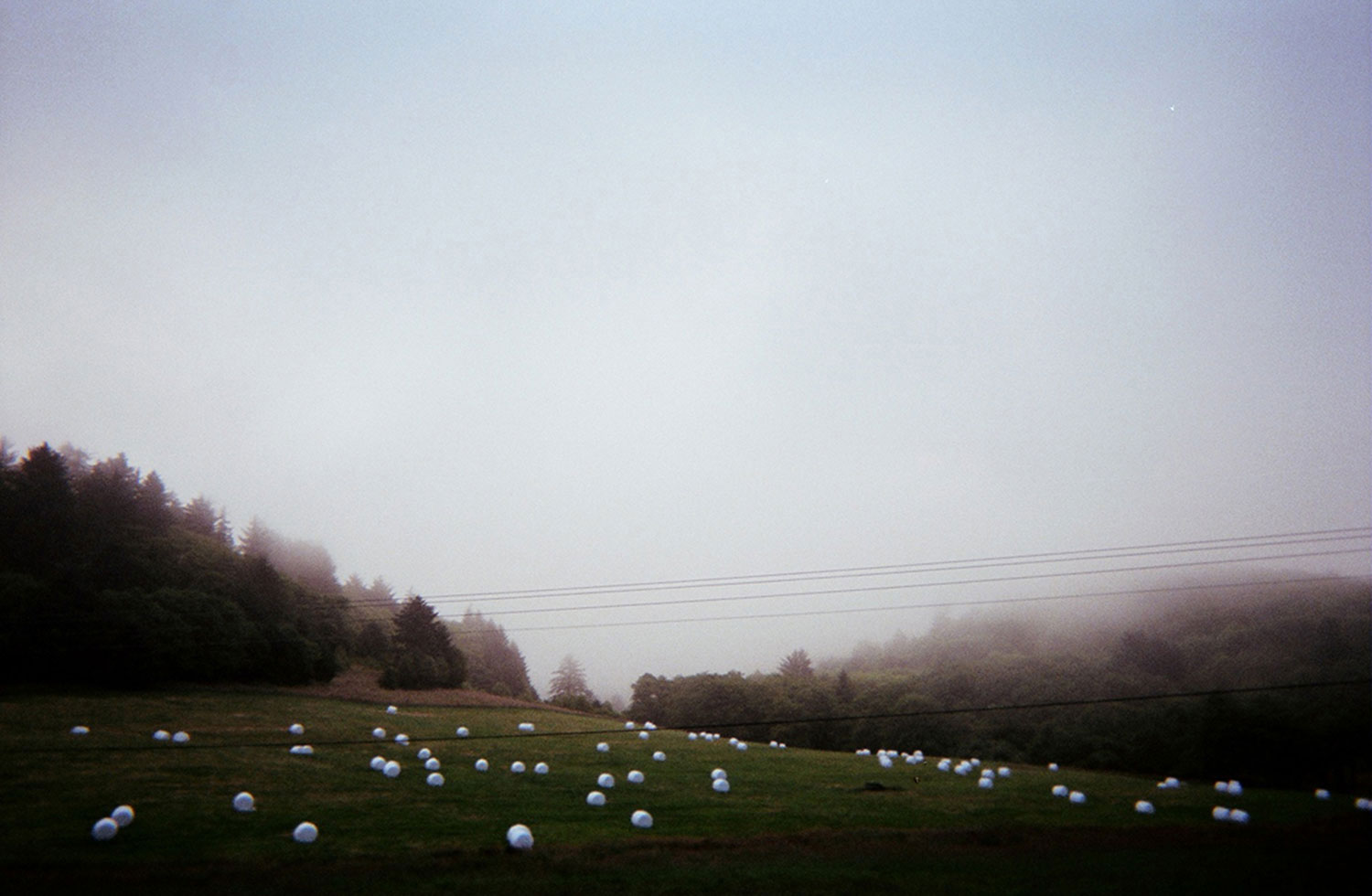
Eugene, Oregon
-
Another cantankerous motel. Beige curtains, bleached yellow, dotted with fly husks frozen over the air conditioner. Beyond, a diffused light show of corporate signage smeared in a spectral blur. Inside, sunlight barely reaching the floor. My vision never adjusts.
CNN recycled coverage of an 8.7-magnitude earthquake that railed the northern coast of Chile all the way up to Hawaii, where people evacuated in case of a tsunami. The earthquake that devastated Haiti in 2010 was only 7.0, and the one that rattled San Francisco in the late ‘80s was a 6.9. The largest recorded earthquake in history was a 9.5 in 1960 that also happened in Chile. Less than 24 hours after it struck, tsunami waves hit Hawaii then Japan, over 10,000 miles away. During the last month since I left Los Angeles, there had been more earthquakes in California than ever before recorded. More than a dozen quakes of 4.5 magnitude or higher had hit the United States that year, and it was only April. Chile was far from Oregon, but given the circumstances, I worried.
-
Surrounding the hotel parking lot was a dense field of trees — not the kind of forest people strolled through but a wooden rind, the type of semi-secluded area that insulated business centers and office buildings. The only time people saw these woods was on the local nightly news as police and volunteers combed the area for a missing person.
I had nowhere to be, it wasn't late enough to sleep. Bored and restless with watching a reality show about plastic surgery horror stories, I grabbed a flashlight and entered the woods behind the hotel dumpsters through a trail most likely forged by animals coming out to feast on garbage. I lurched through the low-hanging branches until the forest closed behind me. I headed to where the trail thinned into patchy undergrowth sloping into a ditch. Inside was the wedge-shaped entrance of a cave. At my back, the treetops were back-lit by a twinkling smear of light pollution swelling up from the hotel parking lot. I paused, unsure how far to go before adventure turned into stupidity.
-
I climbed down, grasping at handfuls of dirt and dangling roots for support. Without layers of gravel and sediment to absorb the rumble of nearby traffic, I felt the Earth shudder. Sans the monstrous drone of cars on the interstate, my circulation slowed to an audible throb.
My shouts into the cave went unanswered. No evidence of anyone else inside. The gravel turned sandy from rainwater, which trickled down from an opening in the cave roof. I prodded the sludge for evidence. Warm bursts of air drifted through porous openings in the wall. It smelt like partially digested grass, the hot breath of livestock. There was a rumbling underfoot. I imagined something massive coiling back into its protective shape. I was certain another earthquake was happening nearby.
-
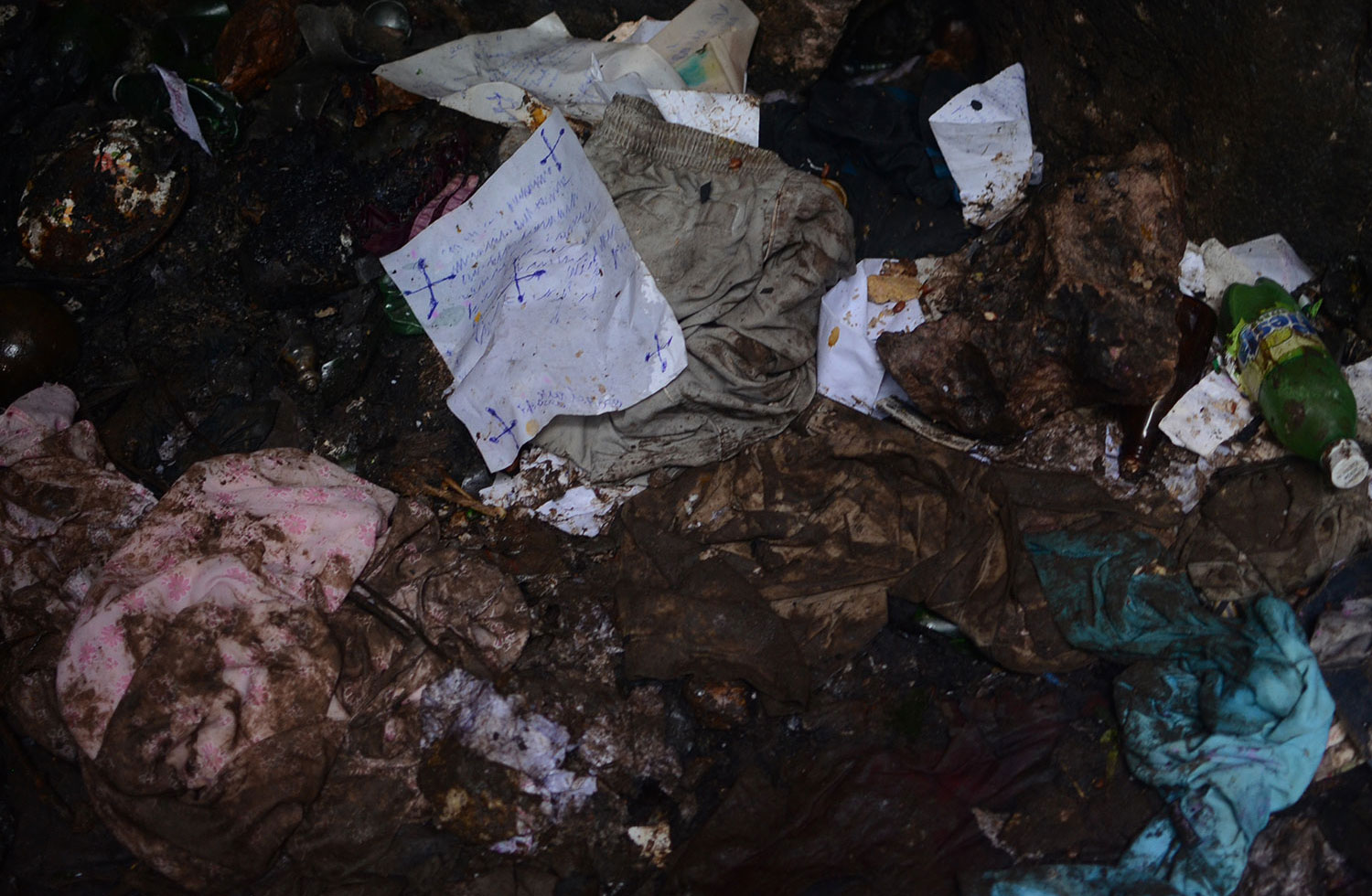
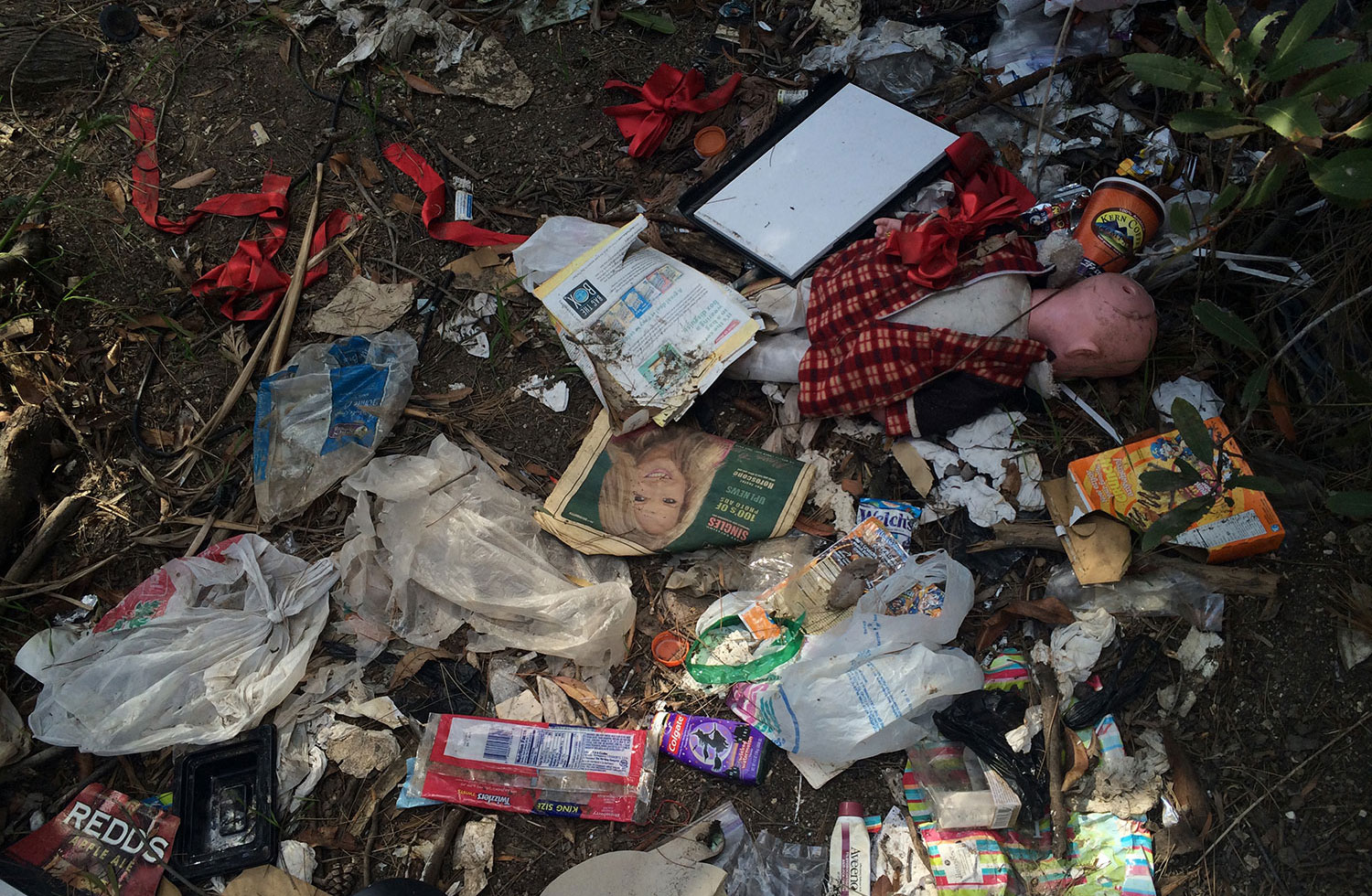
-
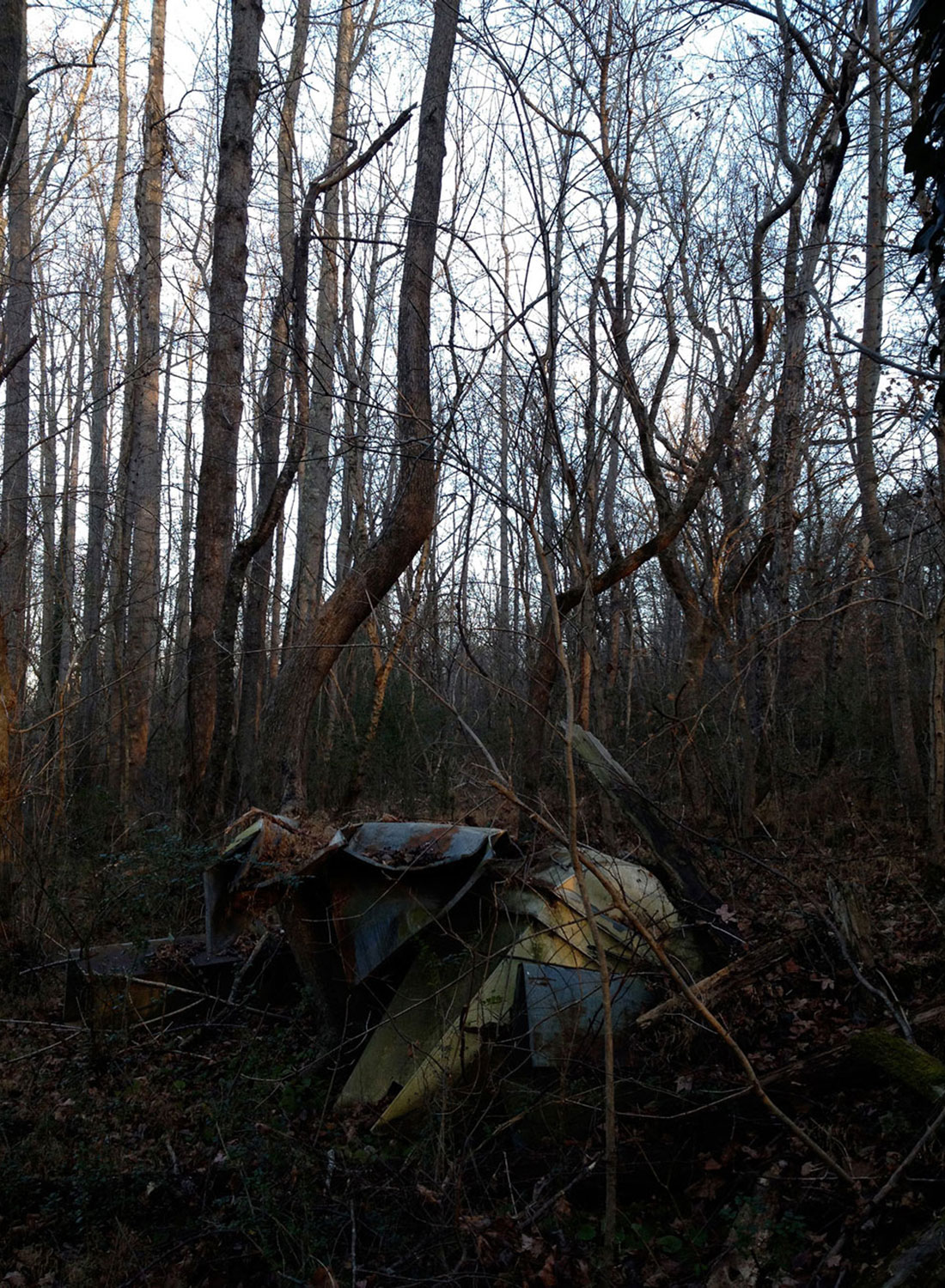
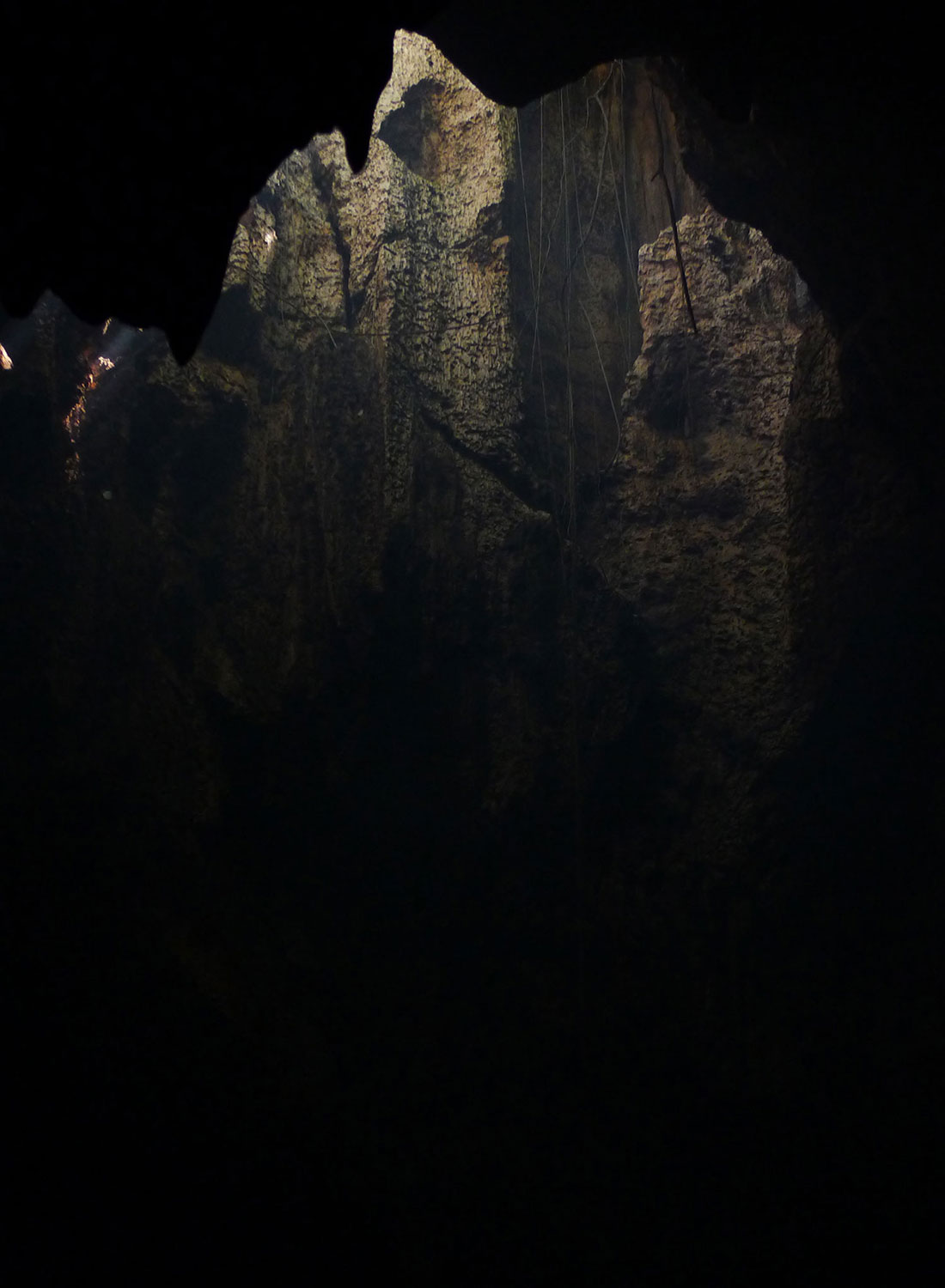
-
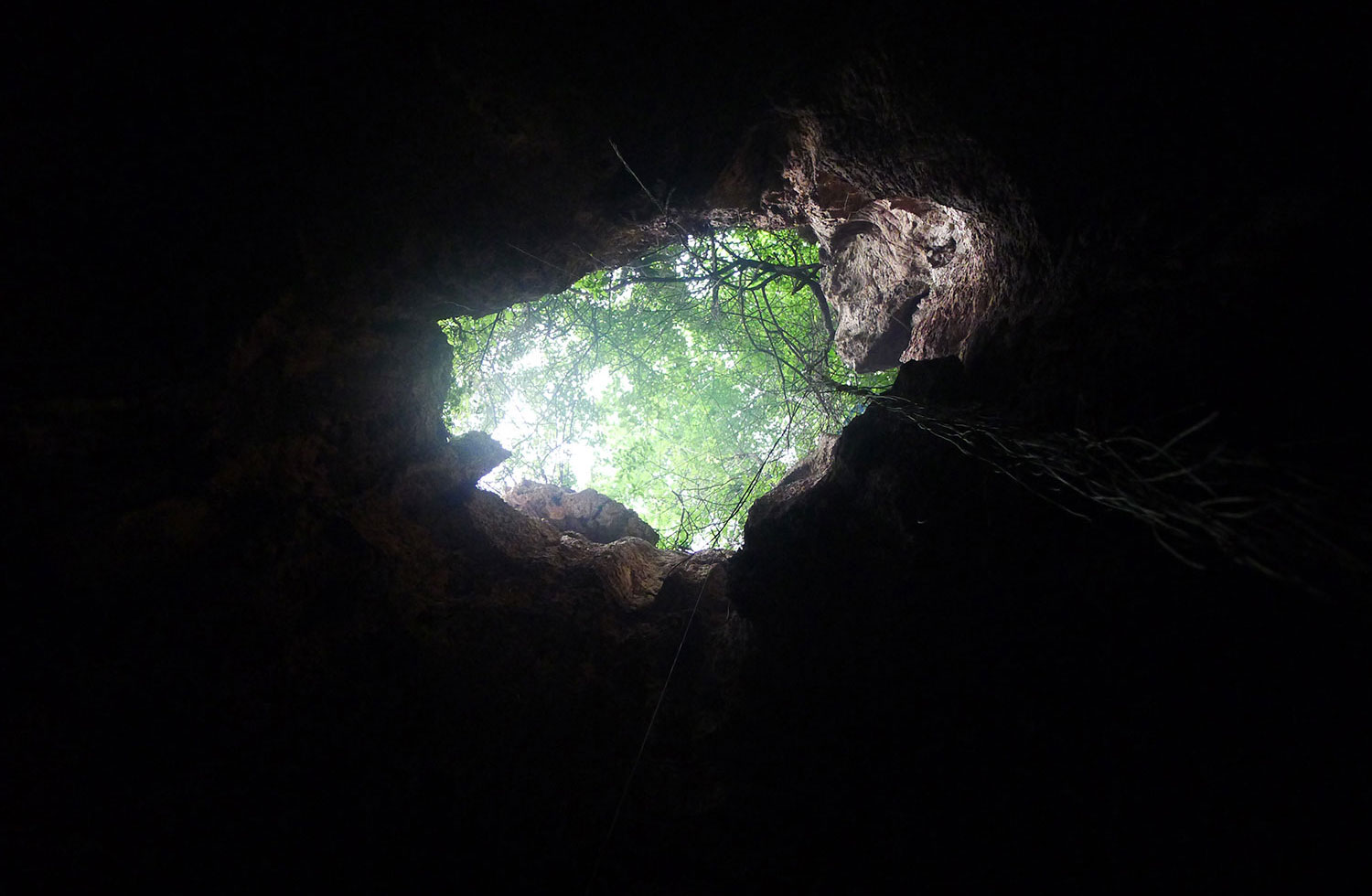
-
Back outside, I retched to clear the smell in my head. All around, the foliage bristled out of focus like low-resolution pixels shuffling. No matter how hard I rubbed my eyes, the forest would not settle.
In my hotel room, I hallucinated tiny evocations hidden inside the book I was reading, Dispelling Wetiko by Paul Levy. I saw letters rearranged into jagged shapes compressed into rows the same size as sentences in a book. I ran my fingers over the page, feeling the tiny monochromatic heaps like the raised mountain ridges on a textured globe. They flattened back into letters and words:
The wetiko virus is the root cause of the unhumanity in human nature. Wetiko represents and inspires the worst a human being can do to another human being and, ultimately, to ourselves. This psychic virus, a ‘bug’ in ‘the system,’ informs and animates the madness of so-called civilization, which, in a self-perpetuating feedback loop, feeds the madness within ourselves.
-
“One way of understanding wetiko,” Levy explains in an interview, “is to view our life as one mass shared dream that all 7 billion of us are moment by moment co-dreaming up into materialization. When you realize that we’re just characters in each other’s dreams, which is to say we’re embodied reflections of each other, whatever evil or darkness is playing out in the world, whether it be in a particular person or country or group of people is like a dream, because what is a dream? A reflection of one’s own energy. That evil we see out in the world is the same evil within ourselves. It’s an incredible portal into becoming more acquainted with our own darkness.”
-
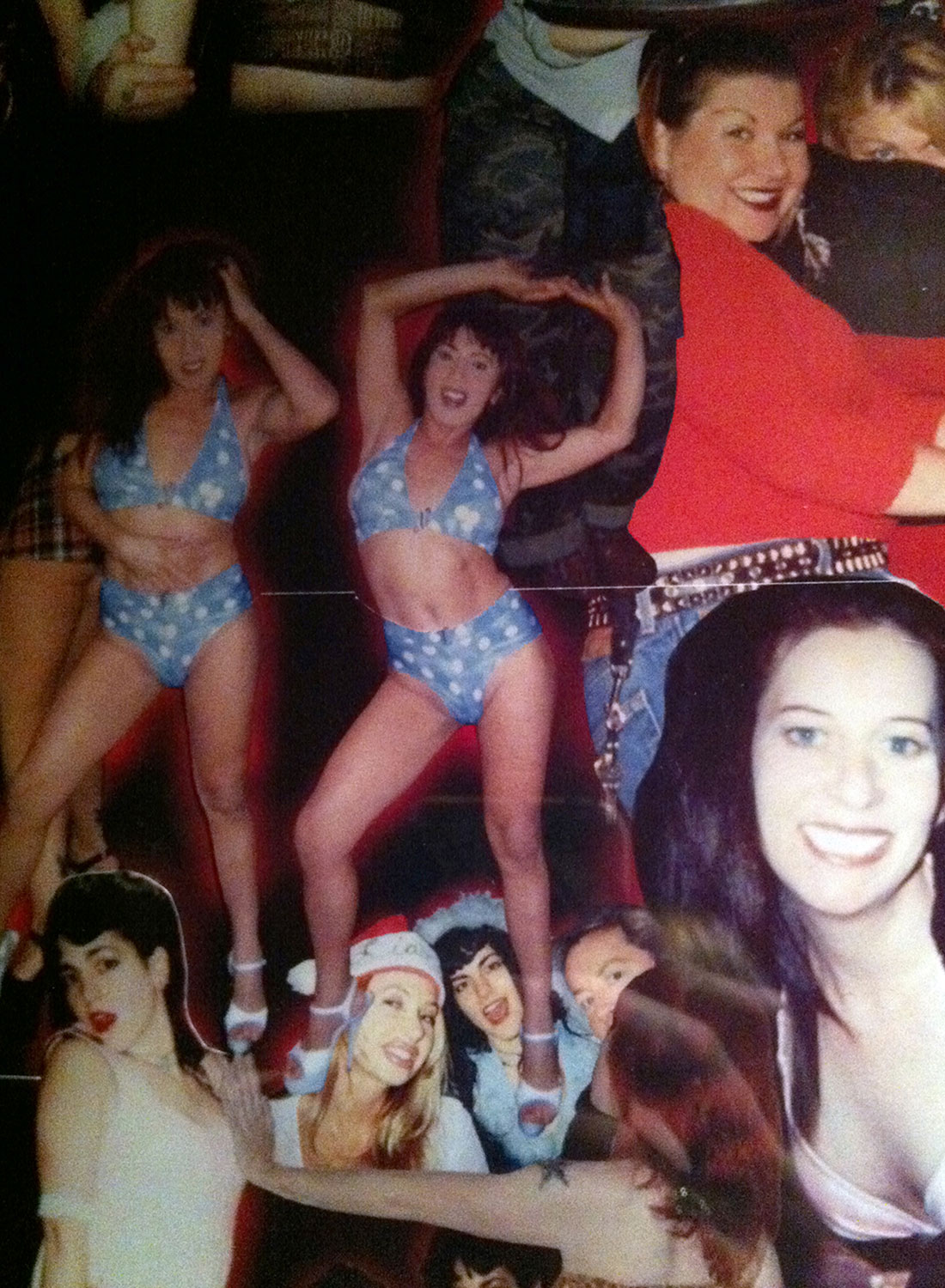

-
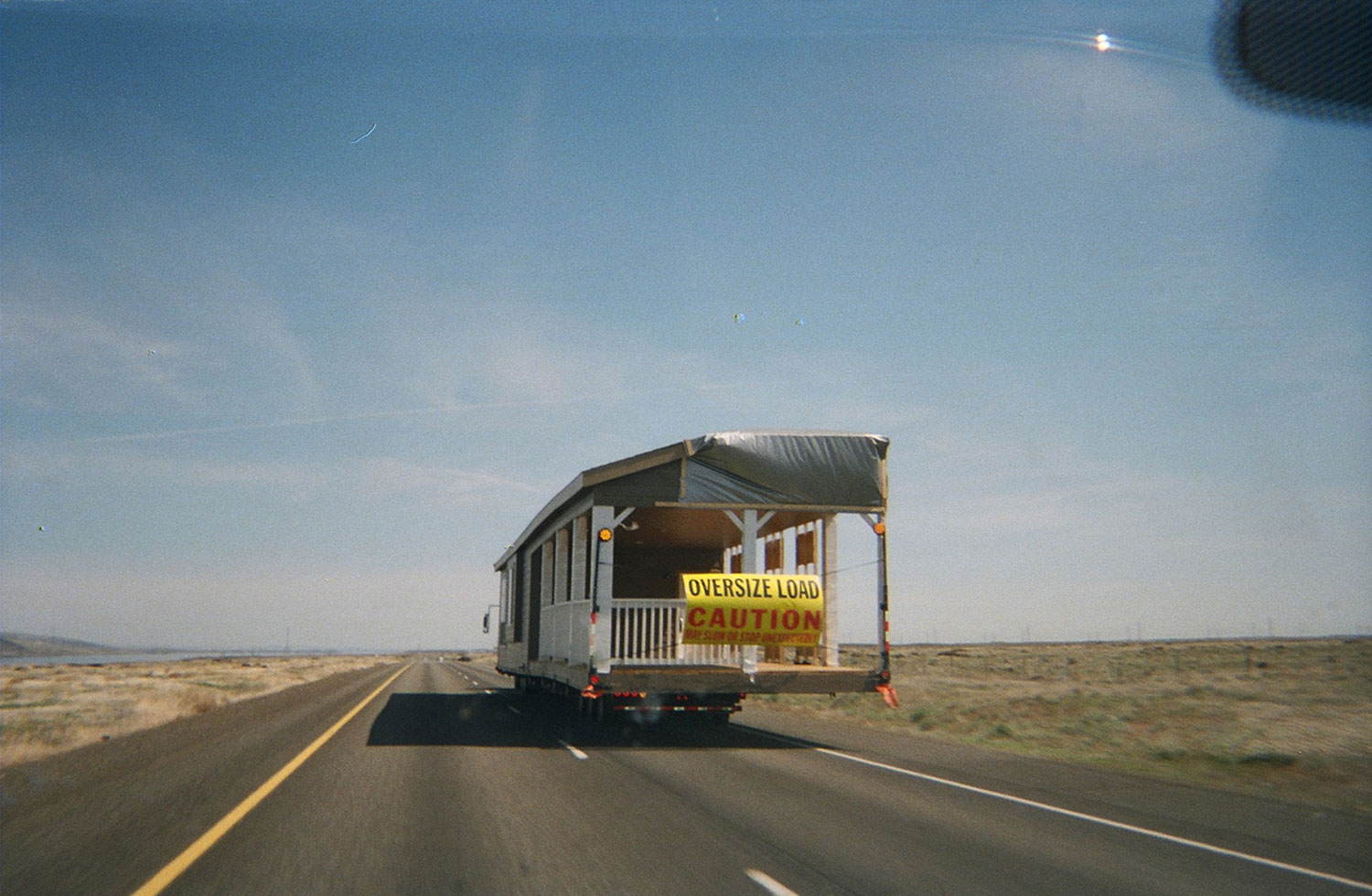
Portland, Oregon
-
Kelly moved to Portland from West Virginia via New York to be with a guy who dumped her for opiates. Kelly was what adults acted like when they played doctor too much as children. Kelly was fun.
She took up dancing at a carpeted strip club called The Magic Garden, also known as The Magic Carpet. Her pole dance routine was coming out on stage dressed in a latex nurse outfit. The Magic Garden proudly served a full menu, but I ordered a club sandwich, the only item Kelly deemed safe. We nodded out to a throng of gyrating strippers. My fillings trembled to dub step farting from the speakers lining the stage.
A fully clothed stripper with teeth too small for her head smiled at me. I gave her a buck for nothing. The DJ wore a plastic Viking’s helmet, marching between tables, yelling into a wireless microphone in his morning zoo radio voice. He urged us to not be shy, to be generous, to clap for Kalea.
In-line for the bathroom I overheard a dancer sharing the results of her pregnancy test with another girl: She was pregnant.
-

-
Back at the table Kelly introduced me to the pregnant girl, Brook, who was also her roommate. Up close, Brook’s pale skin liquefied beneath the strobe lights. Unprompted, she waved her pregnancy wand for us to verify. “Are you going to keep it?” Kelly asked. Brook looked like she’d swallowed a burp, shrugged then slid the wand back into her bra. They posed for an Instagram photo. Brook captioned it: 2 for 1 at the Magic Carpet.
I ordered a round of shots and paid Brook for two consecutive lap dances.
-
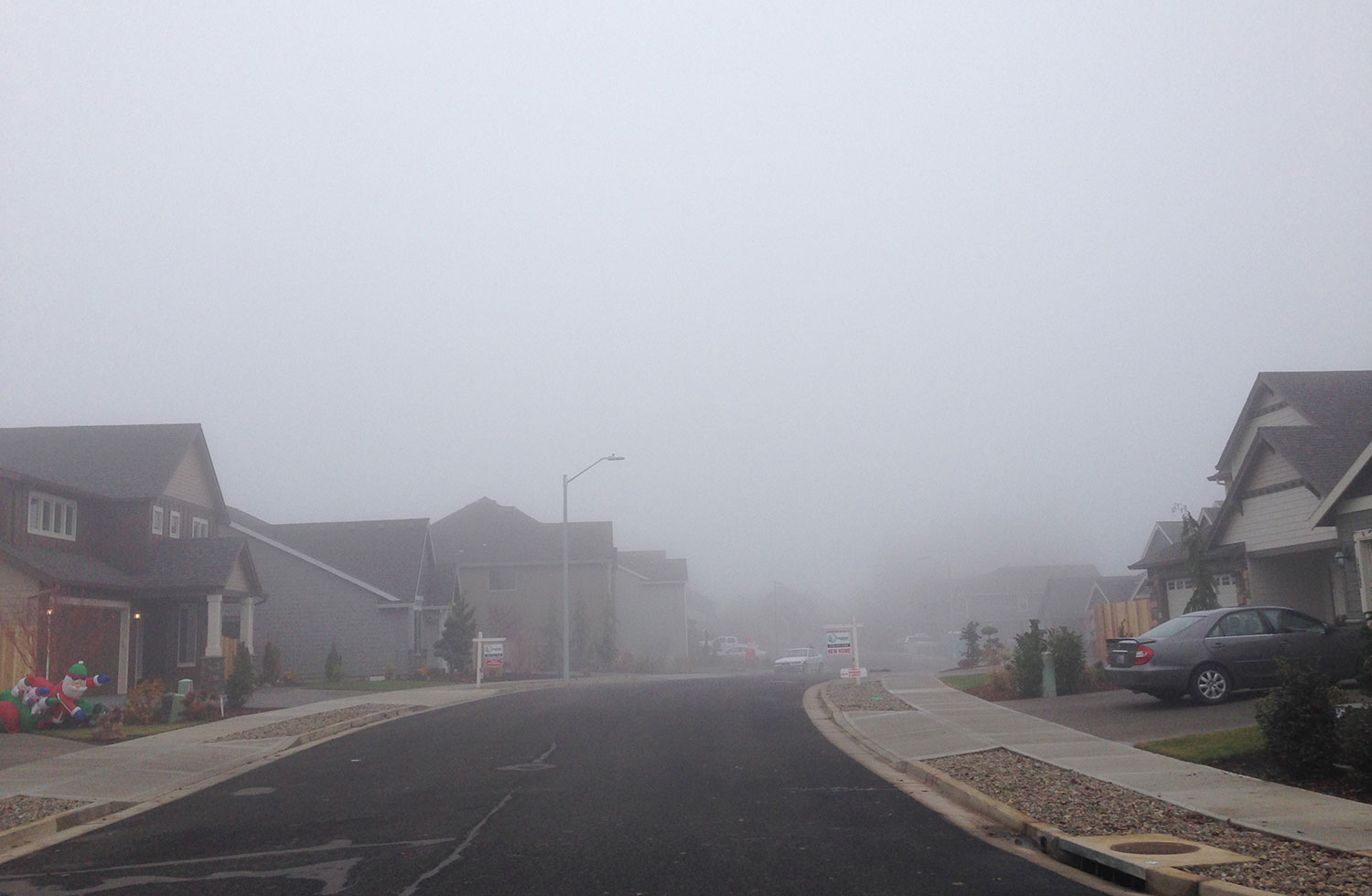
Estacada, Oregon
-
Kelly and Brook's apartment smelt like the inside of a Little Caesars pizza box. Permeating the cardboard scent of oregano and cheese was stripper perfume flavored with stale weed. Their dog, Toni, had a diamond stud pierced through his right floppy ear. Apparently Toni had a sex change due to a urinary tract infection; the vet convinced them to have his penis inverted.
I sat alone in the living room waiting for Kelly to finish showering. Brook offered me something yellow and powdery to smoke. Upon lighting, it turned lumpy. I held in the smoke until my vision turned opaque and the air smelled like butane.
On television I saw fragmented updates about the earthquake in Chile. There had been dozens of aftershocks. Slabs of asphalt and building debris smashed and shuffled with cars. Processions of displaced people walked through the dusty streets.
-
I blew smoke at a vase of white flowers on the coffee table. The petals facing the couch were already stained brown. On the dining room table was an empty hamster cage, the plastic kind with yellow pipes. It smelt of cedar chips soaked in ammonia that brought back memories of the first day of school. Inside the cage were the pellet remains of food, maybe shit and some dirty water. No hamster. The cage meant Kelly or Brook already had a child or owned a pet hamster or was insane.
Still waiting on Kelly, I distracted myself by watching cave videos on YouTube. I clicked on footage taken by a drone inside an ice cave: The camera perspective glides alongside glacial caverns then passed through darkness into tunnels glowing with iridescent light. Thin wisps of ice spiral upward as it lowers through an opening in the floor —
— a cold breeze filled the room. Bills flew off the table. The air felt crisp and frozen inside my chest. The howl of wind abruptly stopped like a tinted sunroof clicked shut above me. I looked out from between blinds at mobile homes cocooned in sodium-vapor lighting. I held my breath.
-
A Dateline episode called “Somebody’s Daughter” came on. It was about the disappearance of several runaway teens turned prostitutes. They’d been kidnapped, killed and buried in the desert outside their hometown in New Mexico. Several clues pointed to a truck driver who was recently apprehended for choking out a hooker at a nearby rest stop, but he was later exonerated. Another clue was a series of satellite photos showing tire tracks coming off the highway and cutting through the desert to and from the burial sites where the bones were discovered. None of the photos identified the truck. All the victims were Hispanic girls, approximately in their early 20s, taken from the area — except for one. The latest victim was a younger black girl from Nevada, a detail that dismantled the prevailing serial killer scenario. It meant that there was likely more than one killer. The episode ends unresolved.
I smoked and thought about that satellite floating in space, autonomous, archiving snapshots of a mass grave in New Mexico without even knowing it.
-
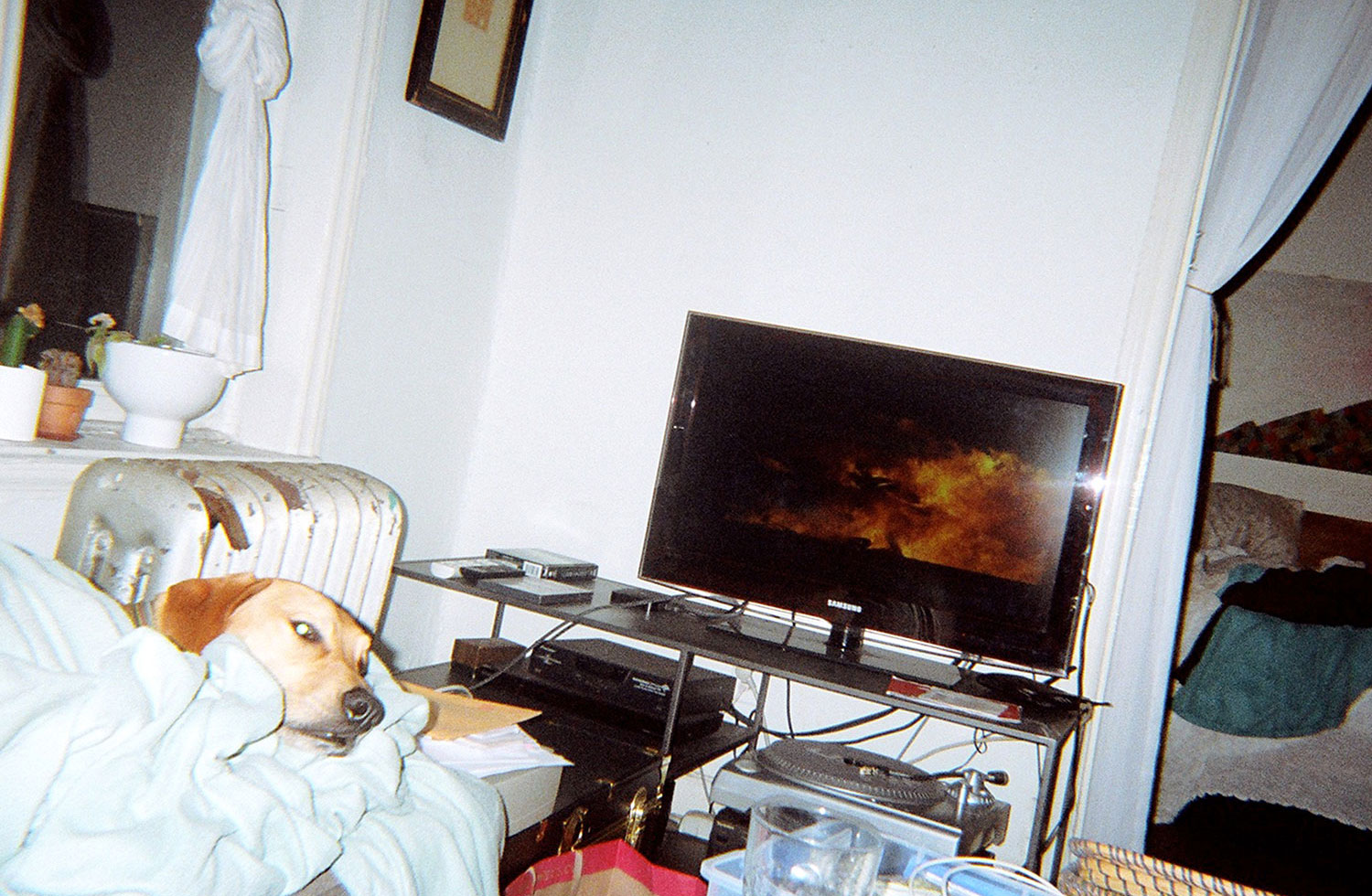
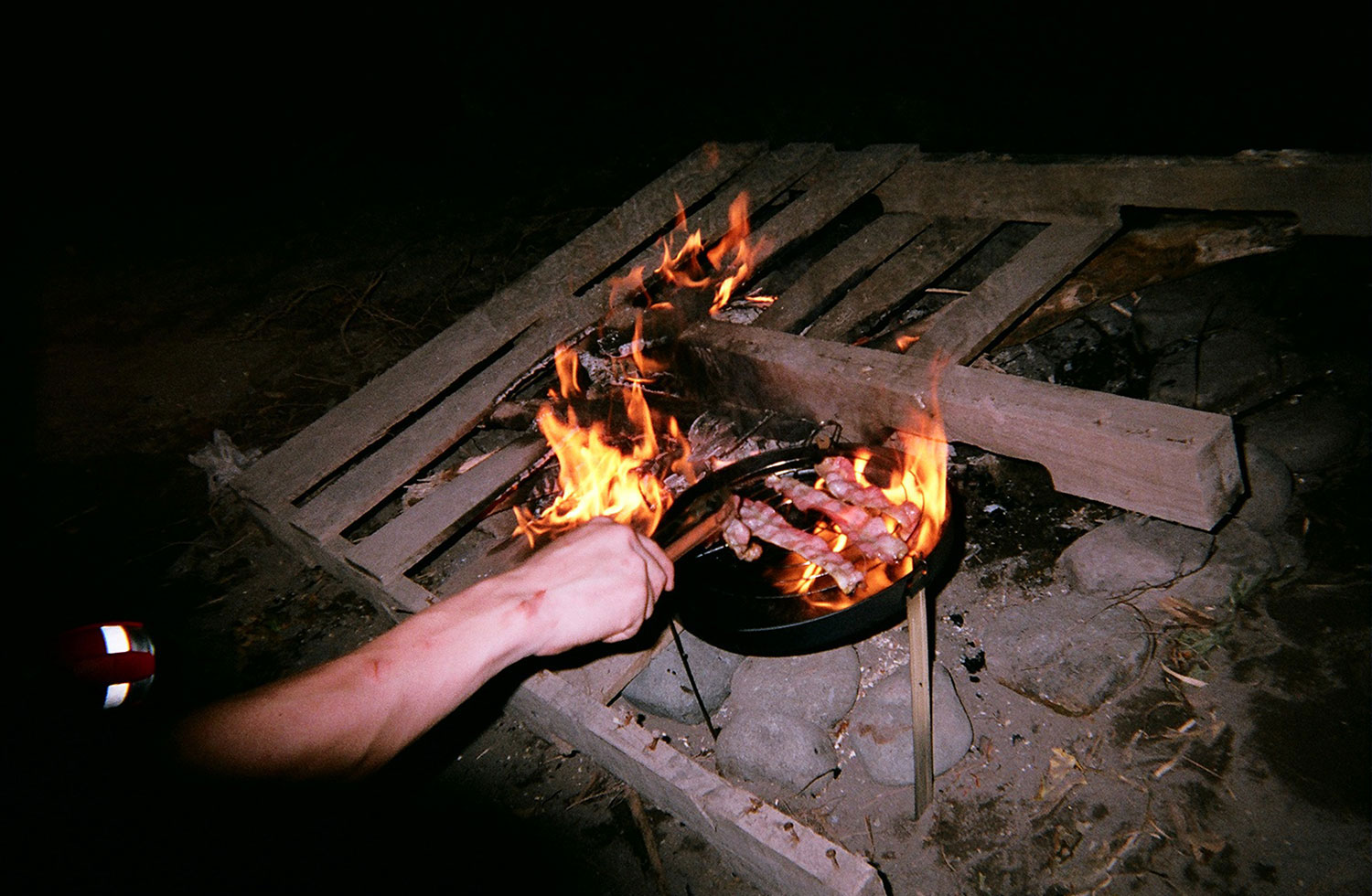
-

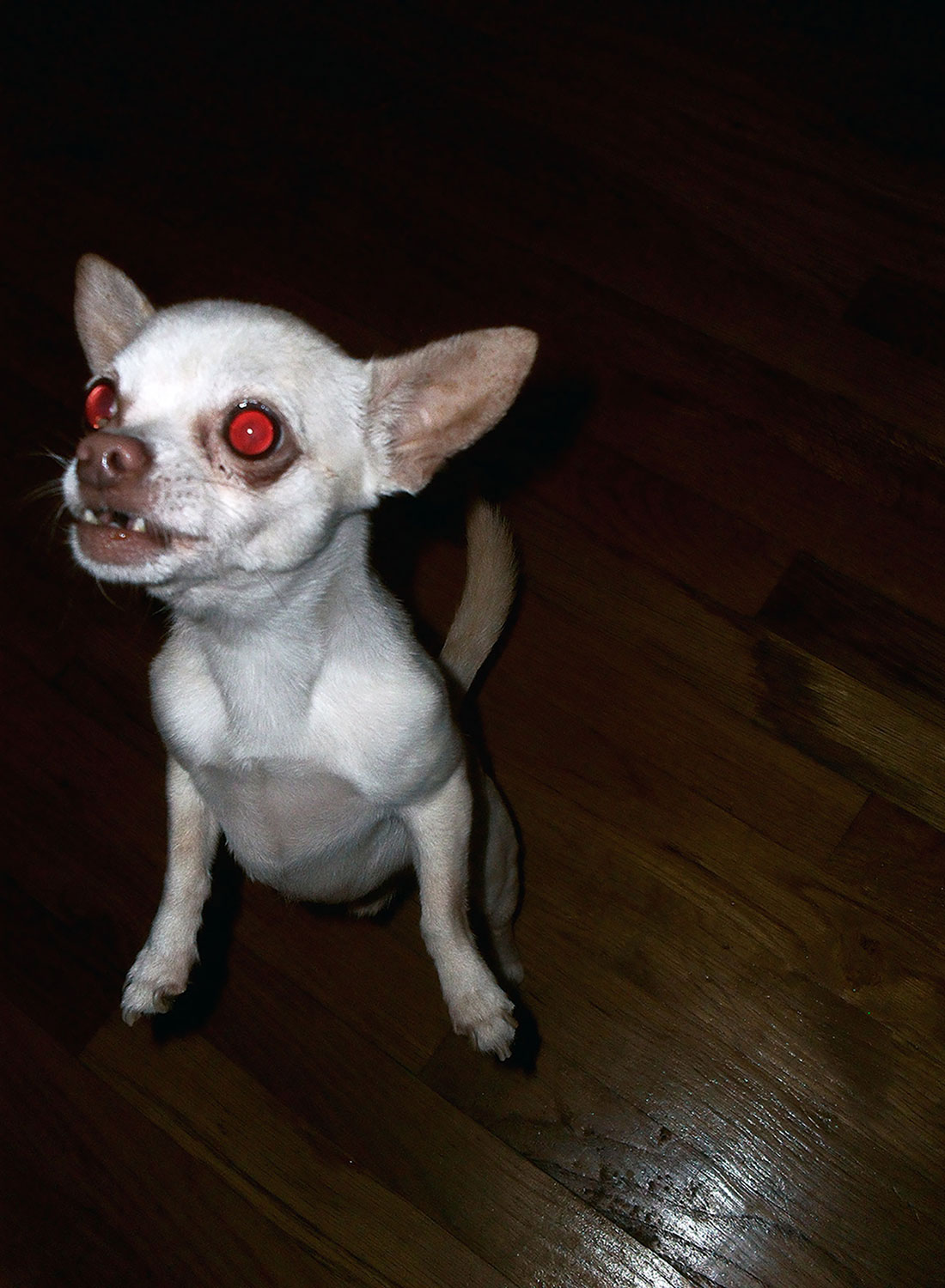
-
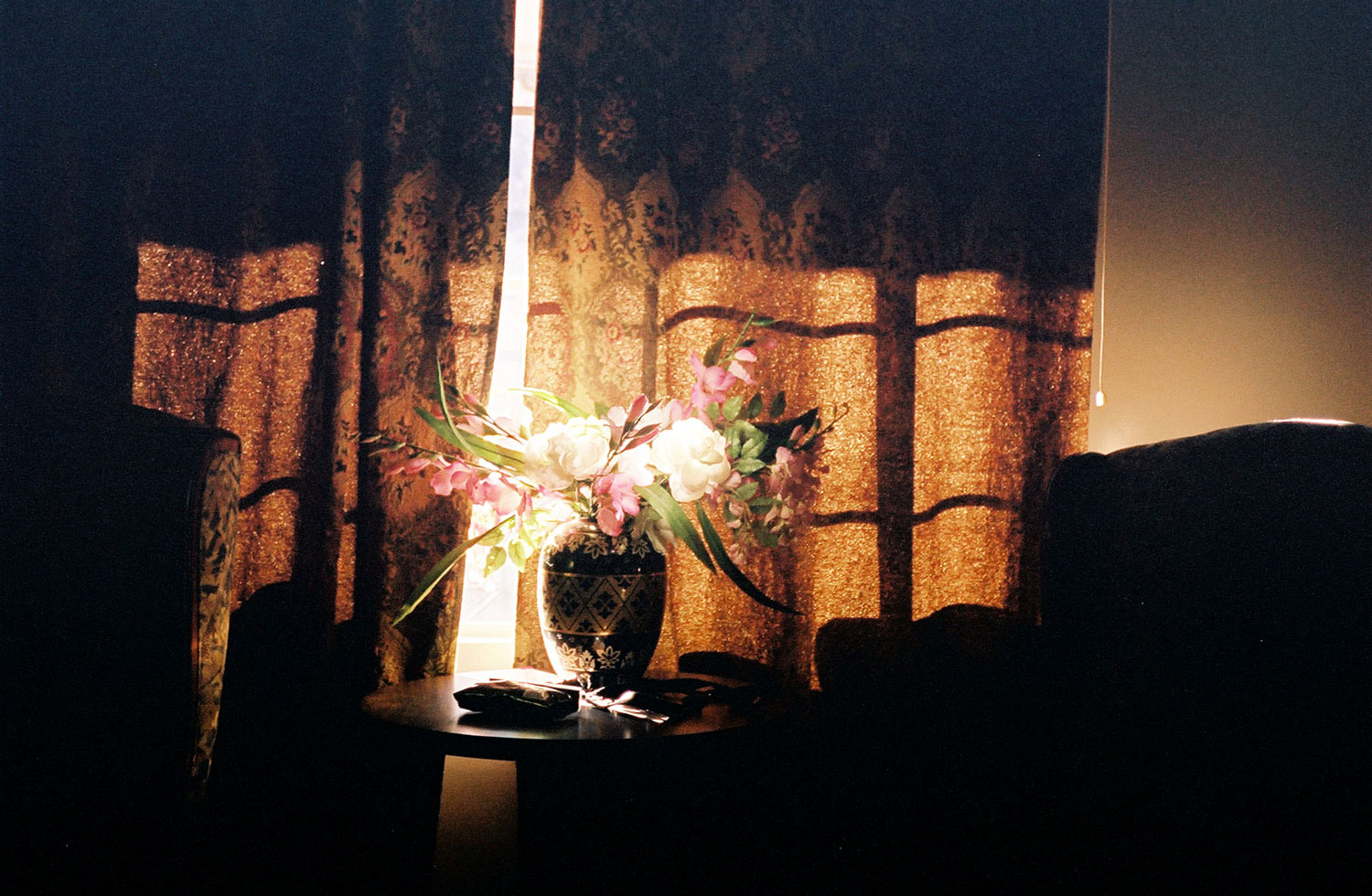
-
Over an hour later Kelly and Brook emerged from different parts of the house. Kelly was wearing a Zumba halter top, no pants. Dangling from her neck was an antique stethoscope. I forgot about her propensity for playing dress up. She claimed to have bought the stethoscope off eBay as a prop for her dance routine at The Magic Carpet. She waved the diaphragm close to my face and tapped her finger against my chest. "Shall we check if there’s a heart in there after all?"
Kelly asked Brook if we could listen to her “unborn child.” Halfway through saying “It’s too early,” Brook trailed off and pulled up her shirt. Kelly cleared the table for Brook to lay on. Splayed across the latter’s chest was a reef formation of veins. Her skin marbled white/purple up to her clavicle, where the darker skin-tone of makeup came on. I noticed a thin scar running across her throat. She did a good job of masking it with concealer and necklaces. I wondered if it was self-inflicted. I bet if she flaunted it, she'd get bigger tips.
-
The stethoscope’s earpieces jammed tightly into my ears. I watched Kelly move her mouth but couldn’t hear what she was saying. Kelly positioned the diaphragm over Brook’s stomach. Inside her, the silence broke. In place of prenatal shifting sounds, I heard the gurgle of laughter mottled by the digestive sizzle of vodka soda and chicken quesadilla.
My brain froze between the earpieces. Jolts of electricity radiated into patterns of light. Pressure swelled behind my eyes. I stepped outside myself, encased by an ornately veined pink blur, superimposed — holographic and crackling — over their apartment. Gristle, fat, muscle tissue and internal organs harmonized into a fizzy chime.
A door opened.
-
Cotton ball-sized swathes of shadow darted back into ceiling corners. A gauzy cluster of images flickered out.
I telescoped back into Kelly’s apartment and immediately unplugged myself from the stethoscope. Brook stood up off the table and walked toward the dark end of the hallway. She disappeared. My brain settled into colorless mush. Kelly was asleep on the couch. Beneath the cushions wafted the tangy scent of a dead-animal, like my weight kept it trapped there. I took one last look at the empty hamster cage and cringed. It was time to leave.
I drove straight through to Spokane.
-
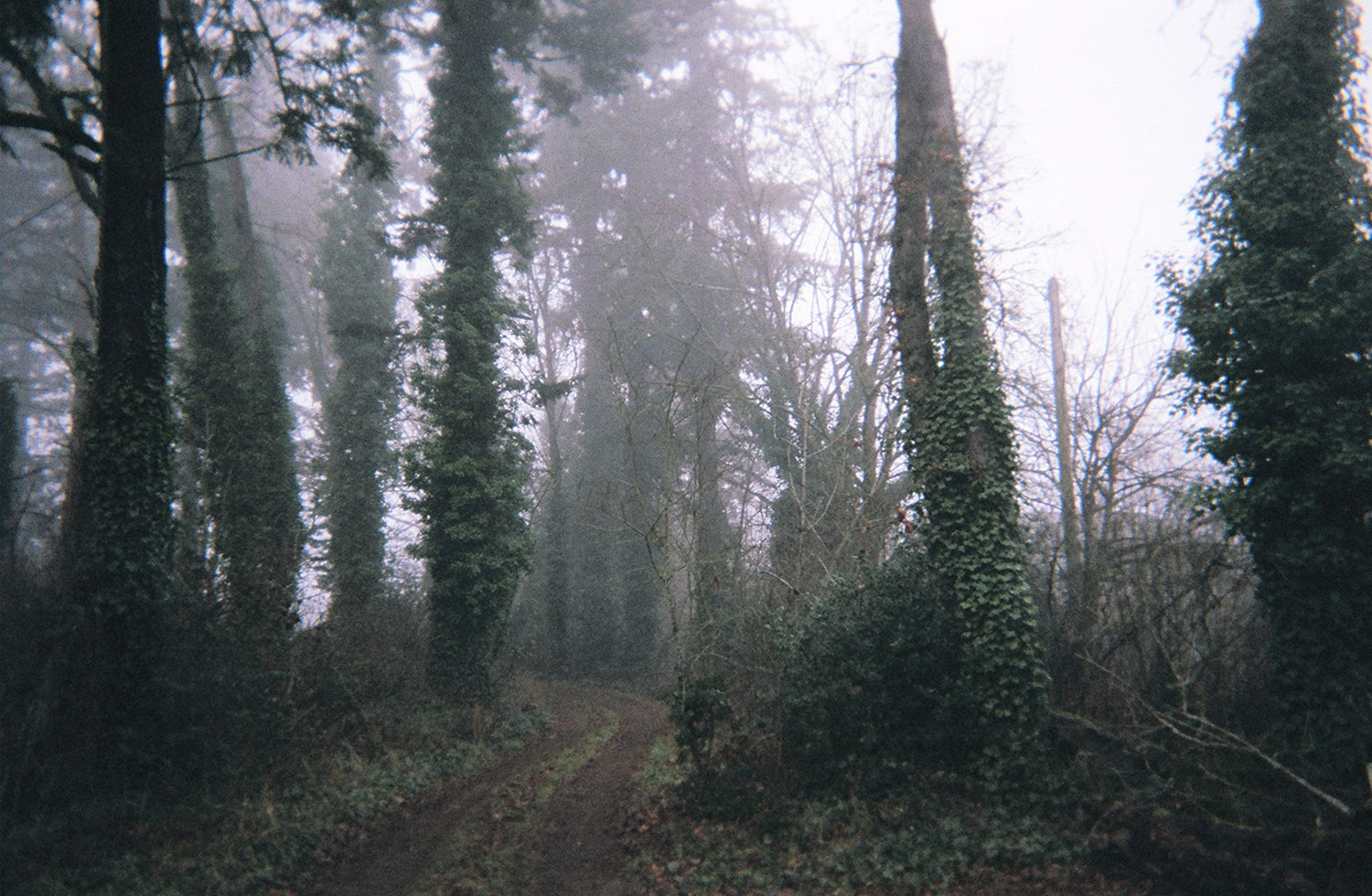
-
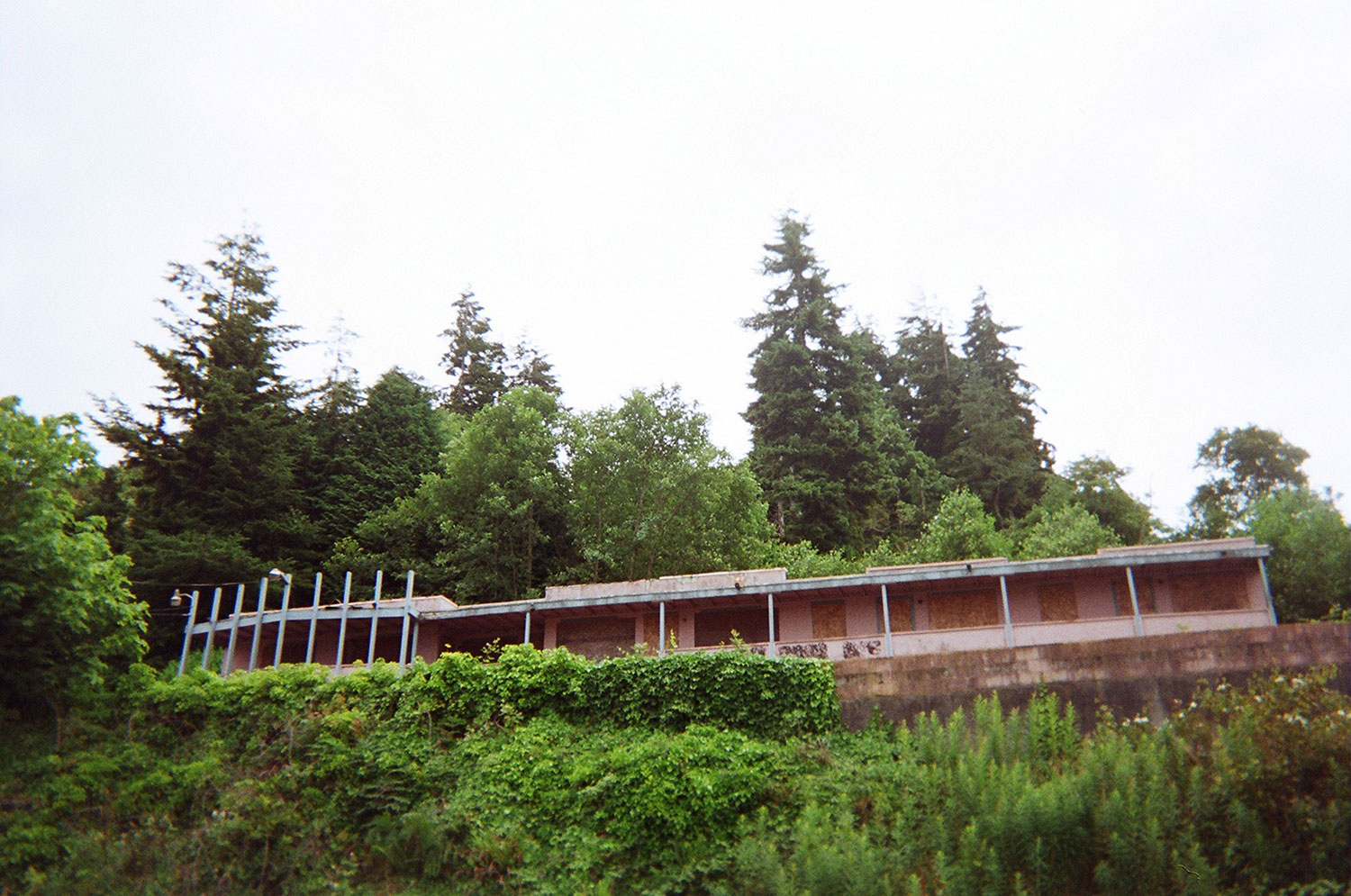
-
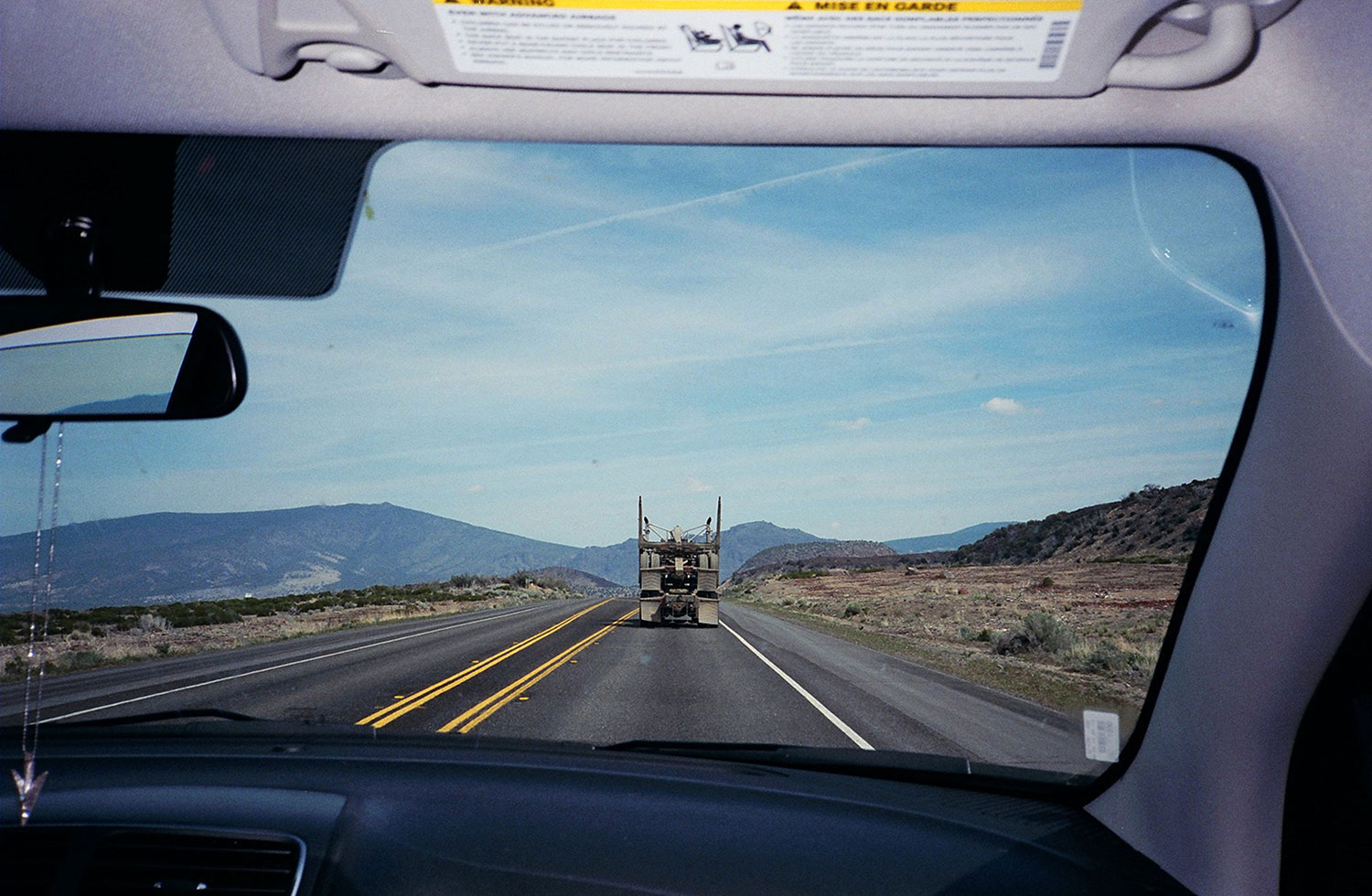
Part III:
Eat Prey Drug: Summer Chills -
Share on FacebookShare on Twitter
Read More In This Series
Or Buy Paul Kwiatkowski's Book
And Every Day Was Overcast
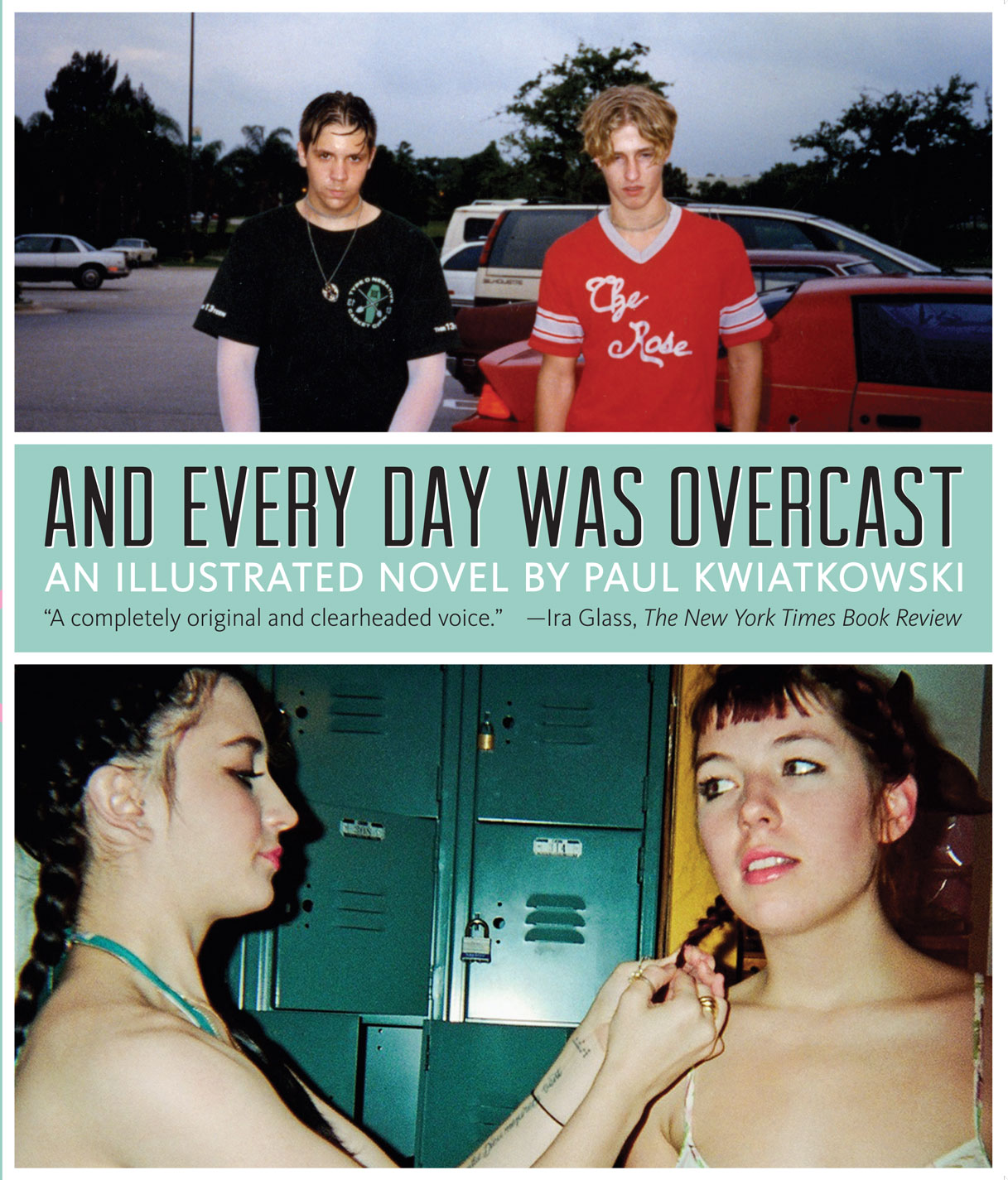
Out of South Florida’s lush and decaying suburban landscape blooms the delinquent magic and chaotic adolescence of And Every Day Was Overcast. Paul Kwiatkowski’s arresting photographs amplify a novel of profound vision and vulnerability.
$29.95
Eat Prey Drug: Wetiko
Text and Photographs by Paul Kwiatkowski








